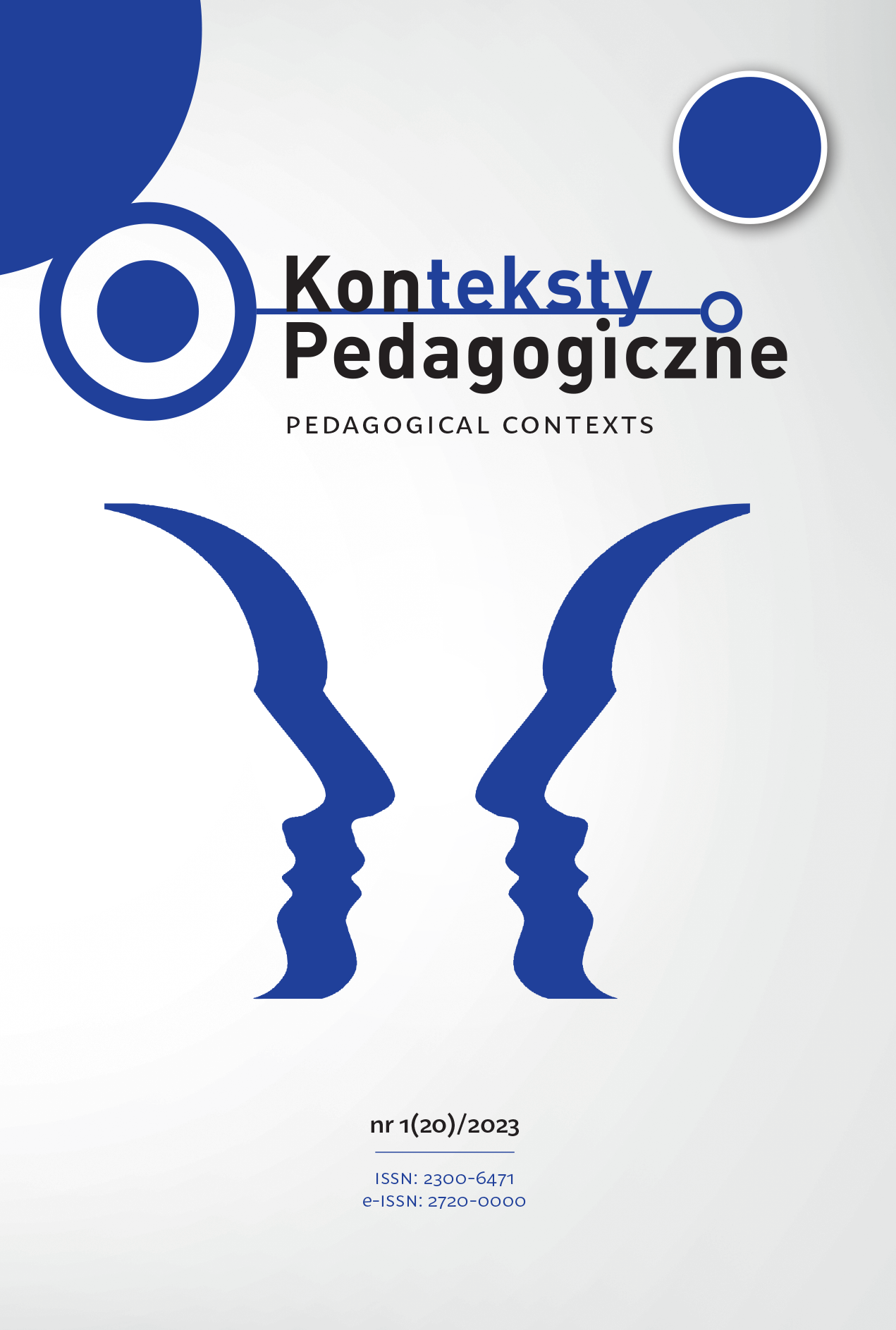Pedagogical Contexts is a semi-annual scientific journal entirely devoted to the problems of present-day education. The journal’s major goal is to create a place where we can confront a variety of ways of seeing, understanding and examining the educational reality with the use of inter-paradigmatic and inter-discursive dialogue among the representatives of various theoretical and methodological backgrounds. Pedagogical Contexts provides an interdisciplinary forum for the exchange of ideas and the presentation of the results and conclusions of research in the field of education in the face of modern civilization and the rapidly changing socio-cultural landscape.
The title of the journal highlights the complexity of the discussed issues as well as its pedagogical contexts encouraging discussion concerning the most important contemporary educational problems among the researchers and practitioners, be they teachers at various levels of education or specialists and therapists. We would like to provide a space that will allow for a review of the current state of knowledge in the area of research and will foster the exchange of experiences and ideas which, in turn, will shape the dialogue and help in working out common solutions.
Publishing the texts of authors representing various fields and sub-disciplines provides the trans-disciplinary and multi-dimensional character of the journal which, in turn, directly affects the presentation of a wide range of considerations, keeping in mind the needs of modern society, both from the point of view of the child and the adult.
Current Issue
Uwzględnienie w pracy pedagoga podmiotowości dziecka stanowi swoisty wyznacznik i miernik wiedzy oraz umiejętności dobrego nauczyciela-wychowawcy. Stąd też jako źródło gotowych wskazówek i rozwiązań, wymagających czasami modyfikacji do warunków panujących we współczesnej przestrzeni edukacyjnej, może posłużyć spadek intelektualny pozostawiony przez Janusza Korczaka. Jego spuścizna oparta jest na przesłaniu, że dziecko to człowiek, mający swoje radości, ale też problemy, będący równoprawnym partnerem przeżywania, doświadczania i działania w otaczającym go świecie. Dlatego chcąc pełnić misję bycia dobrym nauczycielem-wychowawcą, musimy pamiętać, że – jak pisał Korczak – „dusza dziecka jest równie złożona jak nasza, pełna podobnych sprzeczności, tragicznie zmagająca się w odwiecznym: pragnę, ale nie mogę, wiem, że należy, ale nie podołam. Wychowawca, który nie wtłacza, a wyzwala, nie ciągnie, a wznosi, nie ugniata, a kształtuje, nie dyktuje, a uczy, nie żąda, a zapytuje, przeżyje wraz z dzieckiem wiele natchnionych chwil, łzawym wzrokiem nieraz patrzeć będzie na walkę anioła z szatanem, gdzie biały anioł triumf odnosi” (Korczak, 1992, s. 82).
Uświadamiając sobie znaczenie spuścizny pozostawionej przez J. Korczaka, należy pamiętać o jego słowach: „dziecko, sto masek, sto ról zdolnego aktora (…) – bacznie obserwuje dorosłych, śledzi ich czyny i słowa, przewyższa nas siłą uczuć, dorównuje w dziedzinie intelektu, brak mu tylko doświadczenia” (Korczak, 1957, s. 181). Różnica między dzieckiem a dorosłym wynika z posiadanego przez nich doświadczenia, dorosły bowiem nabywa je latami, ucząc się żyć w gąszczu złych i dobrych chwil oraz życzliwych i nieprzychylnych ludzi. Natomiast dzieci gromadząc doświadczenia, jednocześnie powinny otrzymywać nasze zrozumienie i wsparcie, by mogły stawać się diamentami.
Joanna Skibska
Bibliografia
Korczak, J. (1957). Wybór pism pedagogicznych. T. 1. Warszawa: Wydawnictwo PZWS.
Korczak, J. (1992). Jak kochać dziecko. Warszawa: Jacek Santorski & Co Agencja Wydawnicza.

